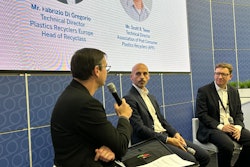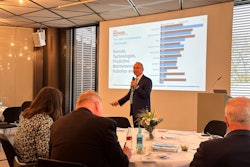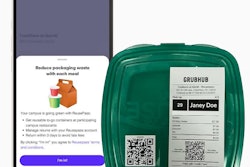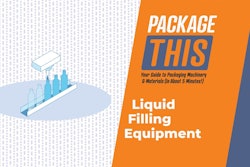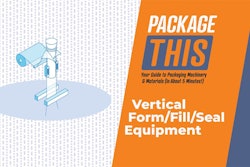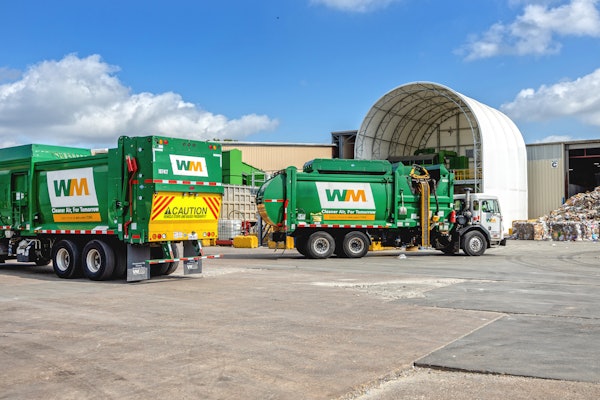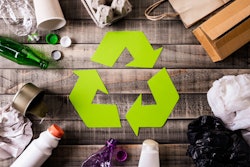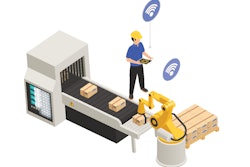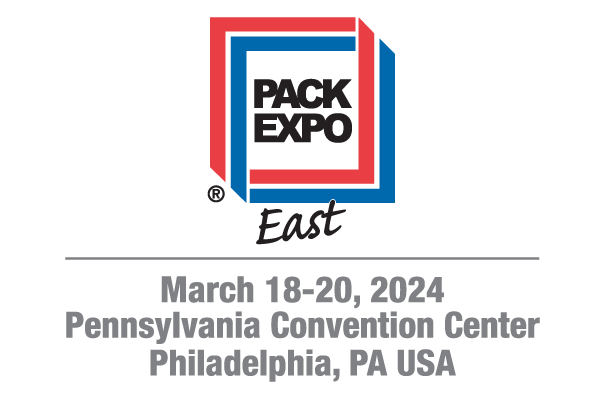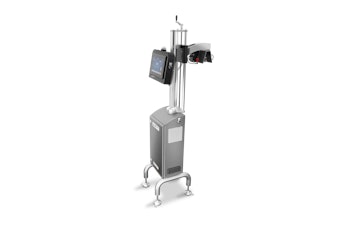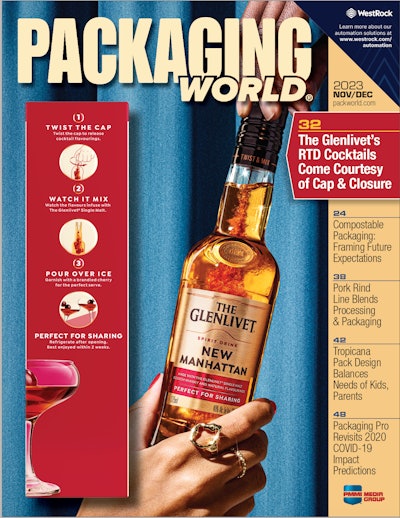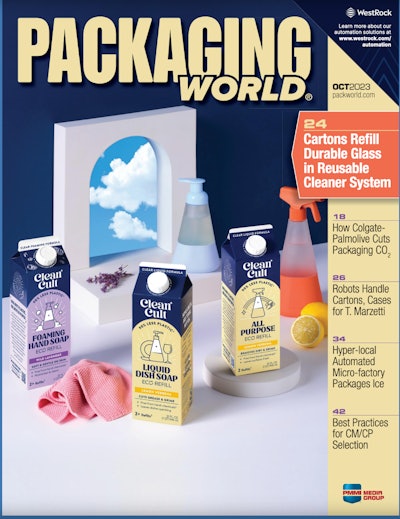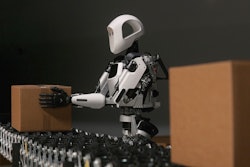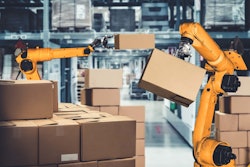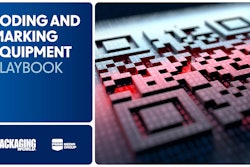PMMI's Director of Custom Research Rebecca Marquez closes the loop on her ground-breaking research project with AMERIPEN, returning to unPACKed to highlight the many ways federal and state legislation will drive sustainability in your state and across the U.S. More importantly, she discusses how laws will impact OEMs and CPGs and what each should be doing now to prepare for inevitable change around Extended Producer Responsibility as an environmental policy approach.
To subscribe, rate, review, and find more unPACKED podcast episodes, visit pmmi.org/podcast or find us on Apple Podcasts, Spotify, iHeart Radio, or wherever you listen to your podcasts.
Sean Riley:
Very cool. So I guess, with all these different materials in mind, what do you think the report revealed that will most affect OEMs, which is our PMMI members? And then, will that be the same or kind of differ from the impact it's going to have on CPGs?
Rebecca Marquez:
Well, I think that probably the biggest thing is changing legislation. That's going to impact CPGs and it's going to impact our members, because we're going to have to innovate to deal with frequent material changes. I think that's happening now. In this report, that we're doing, the best practices that we're doing for flexible packaging associations, we also surveyed CPGs about what kind of materials they use and how frequently they change. About a very small percentage, it's only 3% said that they have had to change materials, they've had to transition materials, six or more times over the last 12 months. And now, now that I know what the process is like for a CPG to do this, that's incredible to me. And it's a really small percentage, but honestly, a third have had to do it at least once over the last 12 months. There was a big percentage.
It might be, I can't remember, might be about 15% or maybe 10%, who have changed three to five times over the last 12 months. That's a lot. And so, what that means for CPGs is there's a lot of change, but it also means that our OEMs are going to have to innovate in this front and think about ways to ease that for CPGs. I don't know if that's just designing machinery differently. I don't know if that means just having change parts available. If you don't need a new piece of equipment, you just need to modify the equipment that you have to make the transition. It's going to impact both groups. The change in legislation, that's coming, it's starting now, and I think we're just going to see that increase.
Sean Riley:
Interesting. So I guess that's an easy segue into, are there any other things that you haven't really touched on? You've touched on a bunch of them, but about how the government's going to impact sustainability. Let's go into the next decade or in the next 10 years, just from a, are we going to finally start seeing legislation? Because we have this, I'm old, but sustainability's been 20 years plus has been this "buzzword." And I recall sitting with people at meetings, 15 years ago, where people said, especially in the OEM sector, that this isn't going to affect us for years, because while they weren't against it affecting them, they just know that the CPGs, that are driving the money and stuff like that, they're the ones that are going to drive real change sort of society-wise.
And then, even bigger than that, it's going to be the government finally saying, "Yo, we need to recycle this stuff. We need to be more sustainable. We kind of have an earth we need to live on." So I guess, with that wonderful intro I just gave you, is there any government stuff out there or on the horizon that we need to be aware of?
Rebecca Marquez:
Well, before I get into that, I do have a funny story that has to do with what you were just talking about. I was at a meeting, probably two years ago, where we were talking about, as a group, over a hundred people in a room, it was a workshop, talking about sustainability in packaging. And one person got up during this meeting and addressed the entire room, and it was a person from a CPG. And they said, "Why are we even talking about this? We've been talking about sustainability for years. No one's going to do anything. It's too expensive. Why are we wasting our time talking about this?" Now, this was two years ago.
I do not hear that from that same person anymore. And we've seen, just in the past couple years, legislation changing state by state with EPR laws. And now, what's happening is that, maybe it's not always EPR laws, but there are bottle bills and all different kinds of legislation that are being discussed in at least 30 states currently. This is happening now, and that is really going to have an impact on all of us. And so, even two years ago, this person was not convinced that we were really going to do anything. And I think, just in that small time, we've seen a lot of change, and it's just going to continue to keep coming at us.
Sean Riley:
Now, when we do see these changes, I feel like, so far, we've seen them at a state level, is there any push or move that you guys have come across, with either the study or just in all of your extra research into this, from a federal level?
Rebecca Marquez:
Everyone I talked to for this study, and we talked to a lot of people from every part of the packaging value chain, they were not really super confident that anything would be done federally. We're hoping that something is done federally, because to have 50 different EPR legislations is going to make it really difficult for our industry. We're hoping that something can be done federally, but again, the folks that I spoke with weren't really confident about it. But we definitely are seeing a lot of activity on the state front.
Sean Riley:
And to your point, most people would probably realize this, but having the differences between the states when you're dealing with... Like we're in the northeast corridor, where the states aren't as enormous as they might be in the Midwest. And for Maryland to have a different one than Virginia, to have a different one from Pennsylvania, to have a different one from New Jersey, just takes away the opportunity for, they could be this grand wonderful facility in New Jersey, but PA's not sending their stuff there and Maryland's not sending their stuff there. They're all doing it internally to follow their own rules. And that's where it just, as you said, is just, it would be so much easier if someone would just come down with a federal law, but we don't want to get into why that is such a difficult thing to deal with.
Rebecca Marquez:
Right. Not on this podcast. Maybe another one.
Sean Riley:
Yeah, that would be a completely separate thing, that would probably not be best stamped with the PMMI logo. So with that in mind, what would you say, what are other findings, a couple things that you came across, that surprised you the most, maybe didn't surprise you and sort of stuck with what you had in mind? But like you said, you learned a lot about all of this, you had never been to a MRF facility, for example. What are some of the things that most surprised you as you did this report and this study? What things kind of popped up?
Rebecca Marquez:
Well, I think that there's really three main things, and we've kind of covered them all. The big one was how CPGs are viewing compostability. I did not see that coming. I don't think anyone who worked on this study saw that coming. Now, I do want to caution and say that this is a compass, this is a guide. This isn't necessarily what's going to happen over the next three, five, or 10 years. This is how CPGs feel at the moment. And I was really surprised by that, because of everything that you mentioned yourself. This is kind of niche. I didn't really see that coming at all. So that was a big surprise. The other one was, given all of the language against plastics' usage, that plastics are really not going anywhere. There are benefits to plastics. Do we overuse them? Yeah, probably. And do we have to get more comfortable with how we manage them at end of life?
A hundred percent. We do have to, but there's a lot of messaging out there about plastics just not being good. I'm sure a lot of people have seen or heard about the island of plastic floating in the ocean and all of that. Plastics, in some cases, have bad press. And so, to see CPGs not really planning on changing those out was surprising to me as well. And then, the third most surprising thing was, when I started going to these MRFs, these facilities, again, the sheer volume at one place is incredible to me. I would highly encourage listeners that, if they haven't been on a tour of one of these facilities yet, that they do so. It's really fascinating. It's life changing. Of course you're not going to go home and...
Sean Riley:
Convert to MRFism.
Rebecca Marquez:
So maybe life changing is a little bit strong.
Sean Riley:
But I like it.
Rebecca Marquez:
It does change minds to see this, because it's staggering what is in these facilities, how it comes in, and what needs to be done with all of these materials. It was really a huge lesson for me, so I would highly encourage listeners to do that, if they can. And I think those are the three big things that I learned about from this entire study.
Sean Riley::
And the interesting thing, as you're saying that about the scale of a MRF, it goes back to what we were just talking about, from a state level, that's a MRF, that might not be dealing with more than one municipality or more than one county or more than one state. We're not talking, if you build this to a federal level, where you could have these, it would be even more massive to have them coming in from multiple places and automatically automation wise to be serviced and everything to be separated. Now, you're talking an even more grand facility, which I guess is kind of the end game or the goal, if we could really get this to work.
Rebecca Marquez:
You're absolutely right. And the MRFs that I've been to are strictly mechanical recycling. We're not even touching on advanced recycling in this conversation, but I have yet to visit one of those facilities. I have not. I'm really eager to do so. I would like to see how those work, but that's still sort of up and coming. I think people are not really comfortable with that yet. And people need to learn more about it to be comfortable with it. So we're only talking about mechanical recycling here. And again, it's really mind blowing how these work. But to do it at a federal level, yes, that's a huge effort. It's a huge initiative. And that's just an enormous increase in our infrastructure to get that passed through and built. And I don't see it happening probably over the next decade.
Sean Riley:
Which is a little bit disappointing, because again, that would be good for jobs and it would be good for increasing sustainability and yada, yada, yada. But again, another...
Rebecca Marquez:
It would be good for a lot. Yeah.
Sean Riley:
Another podcast that we would have to do in a basement somewhere. But with that being said, this was great, and I think we're probably going to have to split this up into two separate pods, which is great. Because this was a good conversation, and you really know your stuff, Rebecca. So I just want to thank you again for taking time out of your day to come on here, and hopefully, you'll have another report coming out that we can get you back on here and talk about with soon.
Rebecca Marquez:
Awesome. It was my pleasure
